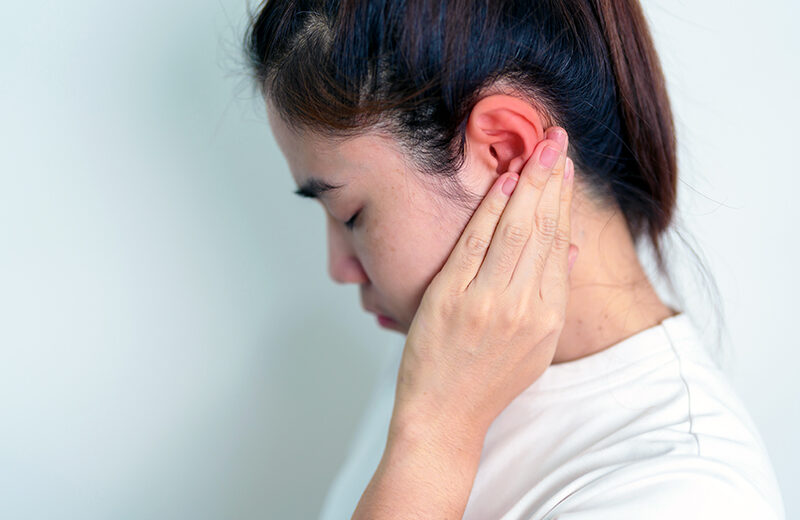Many people tend to ignore ear-related concerns until they begin interfering with their daily activities. The underlying causes of ear issues can range from benign factors, such as excessive ear wax accumulation, to more serious conditions, like ear infections. Regularly examining your ears to prevent ear-related disorders and their associated complications is critical for long-term ear health.
It is essential to be vigilant for signs that may indicate the need for immediate treatment. Here are several indicators to look out for.
Ear-Related Disorders: Symptoms That Are Telling You That You Need Treatment
Blood coming from one or both ears
If you notice bleeding from your ears, seeking medical attention without delay is imperative. There are numerous potential causes for ear bleeding, but only a qualified healthcare professional possesses the expertise to ascertain the specific reason. For instance, the presence of foreign objects lodged in the ear canal may cause trauma to the eardrum, resulting in bleeding. Furthermore, conditions such as a ruptured eardrum or severe ear infections may also lead to bleeding from the ears. If you notice bleeding from your ears, it is critical to visit your doctor immediately. There are various reasons why your ears may bleed, but only a healthcare professional can accurately determine the cause. For example, foreign objects stuck in the ear canal can injure the eardrum, leading to bleeding. A ruptured eardrum or severe ear infections can also result in bleeding from the ears.
Discharge coming from one or both ears
If you experience discharge from your ears, you should seek medical attention at once. Various factors may contribute to this condition, but only a skilled healthcare specialist can accurately diagnose the underlying cause. Potential reasons for ear bleeding include foreign objects lodged within the ear canal, which can result in injury to the eardrum, ruptured eardrums, and severe ear infections. Immediate evaluation and treatment are vital to address these concerns effectively.
Severe pain in the ears
Ear pain may arise from several factors, including the accumulation of earwax or more serious conditions such as ear infections. Additionally, one may experience referred pain, which occurs when discomfort from another area of the body, such as a significant toothache, is felt in the ear due to the interconnections of the nervous system. If your ear pain persists for an extended duration, intensifies overnight, or is accompanied by a fever, it is critical to consult a physician promptly for further evaluation and management.
Foreign objects lodged in the ear canal
Young children, particularly toddlers, frequently insert objects into their ears, mouths, and noses. This action is relatively common among this age group. They may unintentionally place small items into their ears, leading to ear canal obstruction. Additionally, there are instances where insects may enter the ear and become lodged. Only qualified medical professionals can undertake the removal of such foreign objects. Attempting to extract these objects independently may further injure the eardrum and surrounding tissues.
Sudden loss of hearing
Sudden sensorineural hearing loss (SSHL), characterized by rapid hearing loss, can occur abruptly or over several days. This condition is considered a serious medical issue that necessitates prompt medical evaluation. Individuals experiencing any degree of hearing loss should schedule an appointment with an ENT specialist without delay.
Dizziness and vertigo
Symptoms of dizziness and vertigo include sensations of spinning, unsteadiness, or light-headedness, which may worsen with head movements or sudden changes in posture. Fluid accumulation in the inner ear can be a contributing factor. Make sure to consult a healthcare professional if episodes of dizziness occur frequently.
Swollen areas around the ear
Ear infections caused by bacteria, fungi, or viruses can lead to swelling behind the ear. This swelling is commonly associated with the enlargement of a lymph node. If the swelling comes alongside symptoms such as fever, pain, or increasing redness, seek medical attention immediately.
If you observe any of the symptoms listed, arrange an appointment with an ENT specialist.





